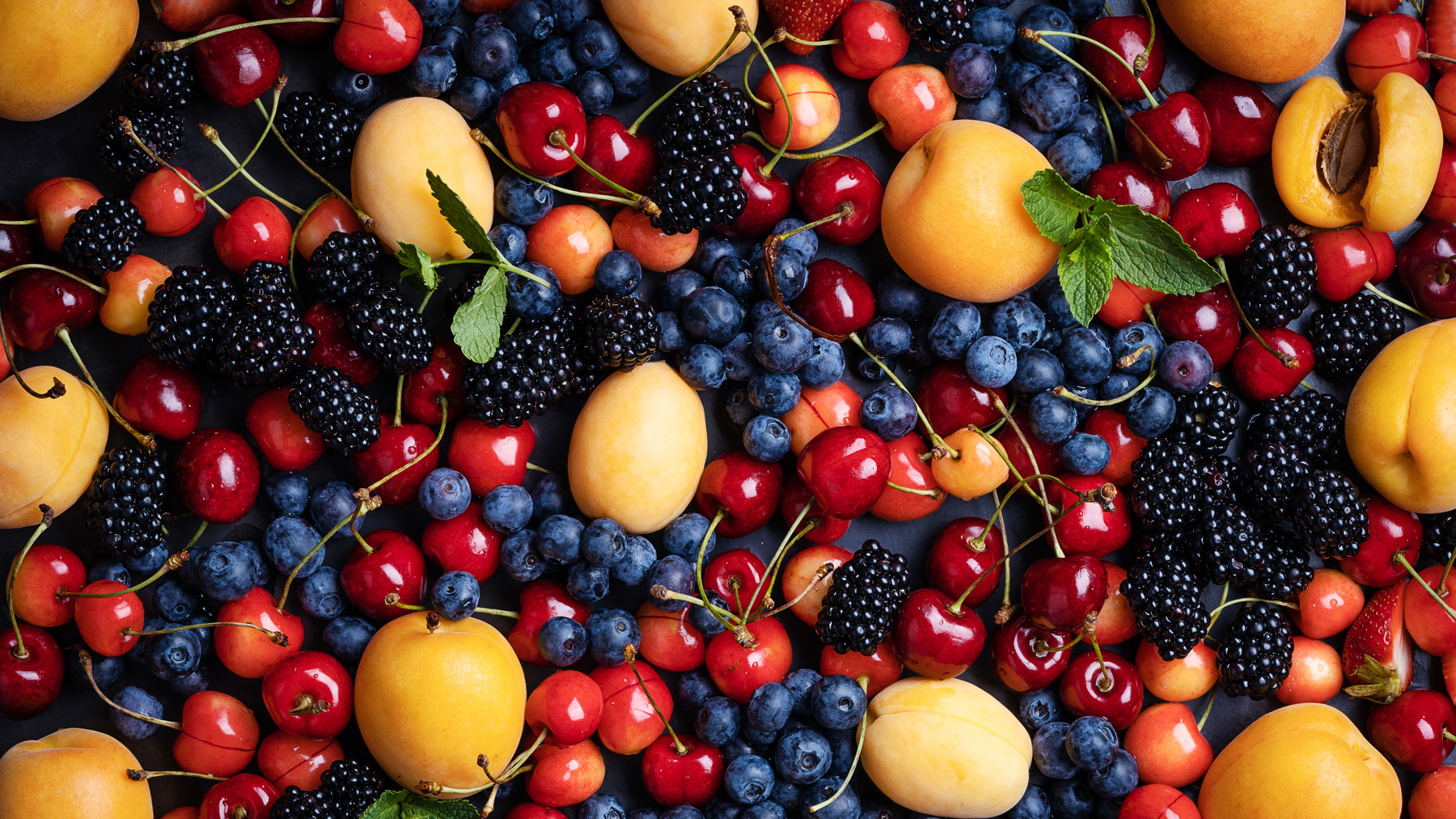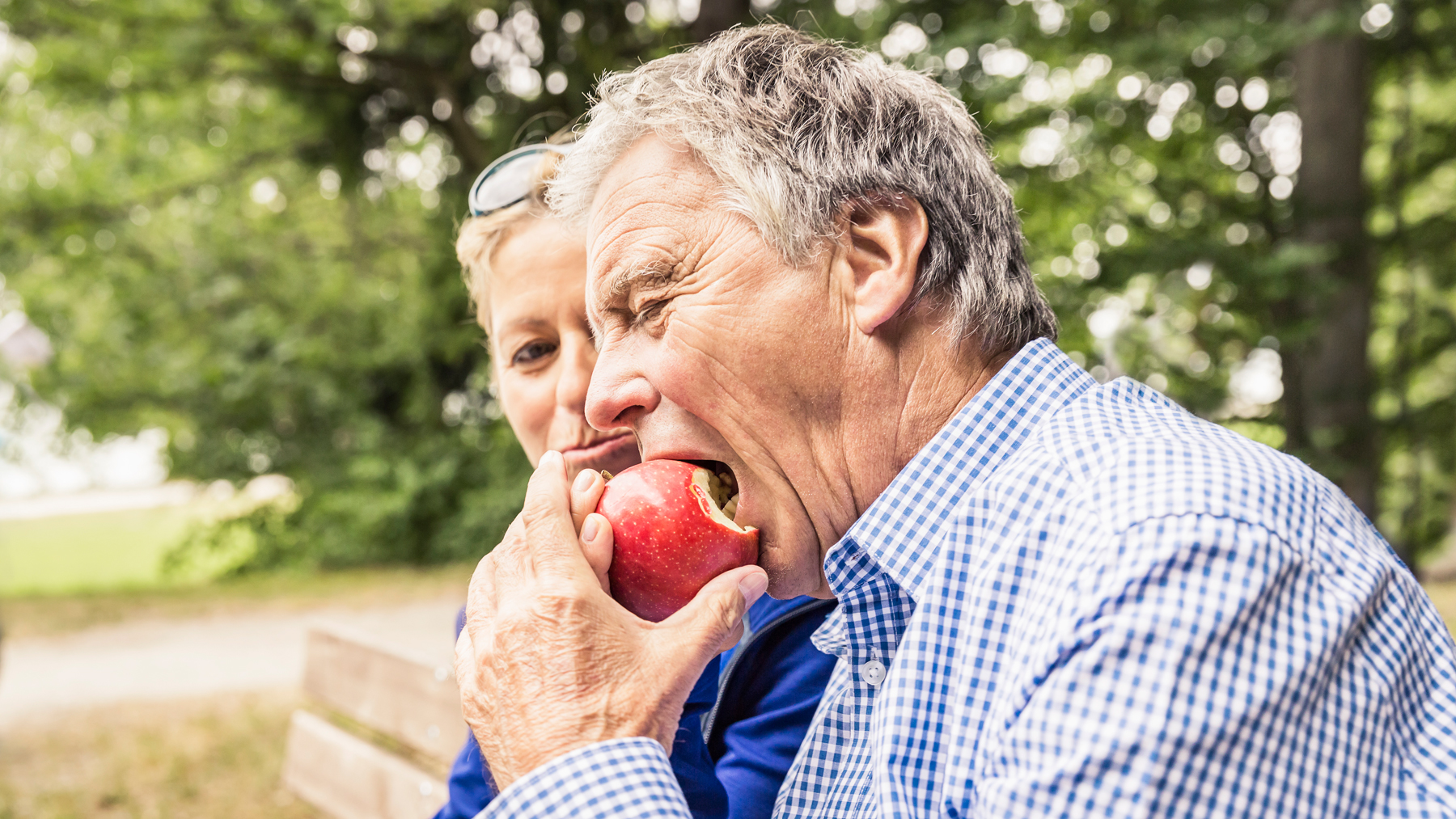
Start your week with achievable workout ideas, health tips and wellbeing advice in your inbox.
You are now subscribed
Your newsletter sign-up was successful
Interested in finding out what are the best fruits for weight loss? Fruits are an excellent source of dietary fiber and are packed full of vitamins and minerals; you may have even heard of some of them, like goji berries or avocados, referred to as ‘superfoods.’ They also tend to have a high water content, which can help keep you hydrated throughout the day. But is there any scientific evidence that eating fruit can aid with weight loss efforts, and if so what are the best fruits for weight loss?
Weight loss can be challenging, so we will look at some of the ways you can incorporate more fruit into your diet to help you feel full and satisfied throughout the day. While you may be hot on it with a top-class fitness regime, using some of the best exercise machines to lose weight, it's important you also look after your nutrition.
Adding fresh fruit like berries or lemon to your drink of water can infuse it with a subtle flavor, which might encourage you to drink more water, or make a transition from sugary drinks to water easier. Ideal if you're heading out with the best water bottles for gym.
What are the best fruits for weight loss?
Fit&Well spoke to Reema Patel, registered dietitian, and nutritionist for Dietitian Fit & Co who explained that all fruits can fit into a healthy diet. “There are no specific fruits that are best, as all fruits that you enjoy can be included as part of an overall balanced diet,” she explains.
“Some fruits contain additional properties that can benefit when aiming for weight loss, such as berries. These are high in fiber and lower in sugar than other fruits, so can help keep you fuller and satisfied for longer," Patel adds, "Some fruits with higher water content can be beneficial to help keep you better hydrated throughout the day, whilst being very low in overall calories – such as watermelon and apples.”
Rob Hobson, a registered nutritionist for British Apples and Pears, explains how swapping out your low-fiber snack for some fruit may help with weight loss, using apples as an example.
“Apples contain 0.04oz (1.2g) dietary fiber per 3.5oz (100g), keeping us feeling full and satisfied when hunger strikes, particularly when consumed before meals. Research has shown that apples are three times more filling than a chocolate bar due to their high fiber content. Pectin, the fiber found in apples, also helps to regulate bacteria in the gut which in turn may help to suppress weight gain and fat accumulation in the body.”
Start your week with achievable workout ideas, health tips and wellbeing advice in your inbox.
On that note, learning how to improve gut health could play a key role in weight loss efforts for some, as research has shown those with fewer types of bacteria in their gut might find it more challenging to lose weight.
How does eating fruit aid weight loss?
Satiety is an important factor in weight loss, as we are less likely to snack or overeat if we feel satisfied. Satisfaction also makes it easier to maintain a calorie deficit (where you are using more calories than you are consuming), which the Journal of Obesity and Metabolic syndrome indicates is one of the most effective ways to lose weight.
Patel explains that fruit is nutritionally dense while being low in calories. “Fruit can help with weight loss as it not only is very low in calories, it also provides a source of fiber, which has been shown to help keep us satisfied and fuller for longer,” she says. “Going one step further and combining fruit with a source of protein such as Greek yogurt or nuts can further satisfy us due to the additional protein, so this can be a great snack idea if you get peckish in between meals.”
Another study in the Journal of Nutrition suggested that those who ate sufficient fiber were more likely to adhere to their macronutrient goals, making their weight loss more successful than those who did not consume as much fiber.
Hobson tells us more about the role that the fiber and water content of fruit plays in satiety. “Firstly, fruit offers a lower-calorie snack option. Secondly, fruit is high in water and a source of fiber which can help to bulk out the diet and keep us feeling full between meals. What’s more, numerous studies have demonstrated that high water density foods are effective in helping weight loss. Apples are also rich in polyphenol compounds that act as antioxidants, helping to protect the body from damage caused by excess free radicals and reducing inflammation in the body.”
The water content in fruits is particularly useful when trying to lose weight, as a study in the Annals of Nutrition and Metabolism indicated that proper hydration can help keep your energy levels consistent throughout the day and may even help stabilize your mood.

Are there any fruits to avoid when trying to lose weight?
Patel tells us that all fruits can fit into your diet in moderation, like all foods.
“There are no fruits to avoid completely when aiming to lose weight. However, fruit should be enjoyed in moderation as part of an overall balanced diet,” she says, “Generally aiming for around two portions of fruit a day is great for most people, focusing more on vegetables with meals. It’s not just what you eat but also how much, so try to also listen to your hunger cues and minimize snacking mindlessly even if it is on fruit!”
We encourage all weight loss attempts to be undertaken gently, with space for all of your favorite foods in moderation, as you are more likely to stay motivated and be successful if you are not completely restricting yourself. As such, all fruits can fit into your diet, even if your goal is to lose weight. We would simply encourage you to be aware of the calorie content of these fruits to ensure you are remaining in an overall calorie deficit. There are plenty of helpful tools online to help you work out how to create a calorie deficit to lose weight, but it’s a good idea to consult your doctor first before making any significant changes to your diet.
How to increase your fruit intake
A report in Scientific Reports journal indicates that food texture plays a role in satiety, so consuming your fruit in a variety of ways may keep you satisfied and help you to stick to your calorie goals.
Here are some of Patel’s top tips on increasing fruit intake:
- Add in a portion of fruit on top of your cereal or oatmeal in the morning to add some natural sweetness and a bit of color
- Make a smoothie with a portion of fruit, a handful of spinach, some milk/plant-based alternative, and some peanut butter or protein powder. Delicious and satisfying!
- If you get hungry between meals, opt for a snack containing fruit – how about apple slices with a spoon of peanut butter, or watermelon chunks and Greek yogurt?
- You can also add fruit to salads. Mangos, apples, grapes, or berries work well to complement typical salad flavors – don’t knock it till you’ve tried it!
Discover more articles unraveling popular diet questions such as does protein build muscle or the benefits of B12 and what to do if you're not getting enough.

Lou Mudge is a Health Writer at Future Plc, working across Fit&Well and Coach. She previously worked for Live Science, and regularly writes for Space.com and Pet's Radar. Based in Bath, UK, she has a passion for food, nutrition and health and is eager to demystify diet culture in order to make health and fitness accessible to everybody.
Multiple diagnoses in her early twenties sparked an interest in the gut-brain axis and the impact that diet and exercise can have on both physical and mental health. She was put on the FODMAP elimination diet during this time and learned to adapt recipes to fit these parameters, while retaining core flavors and textures, and now enjoys cooking for gut health.
